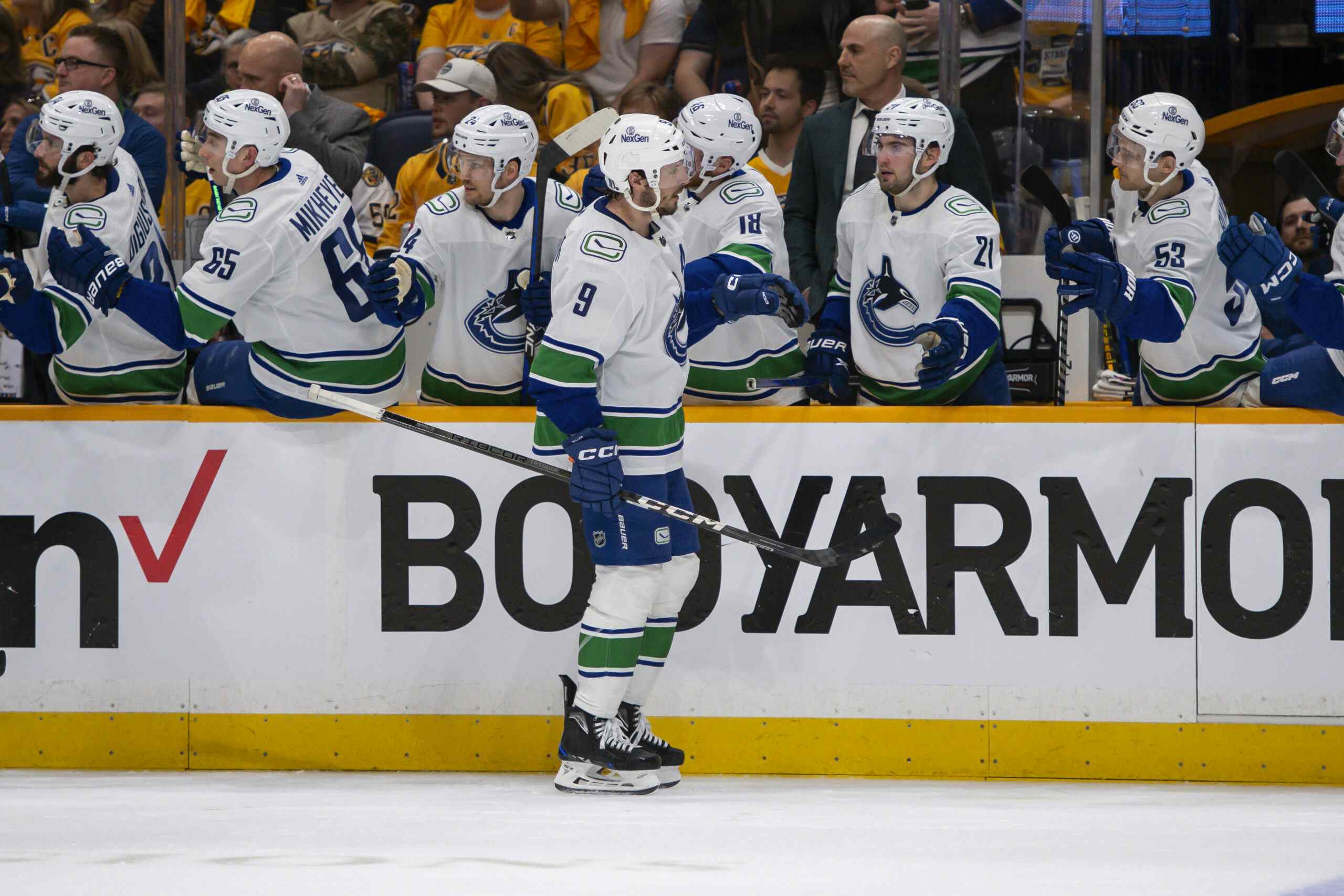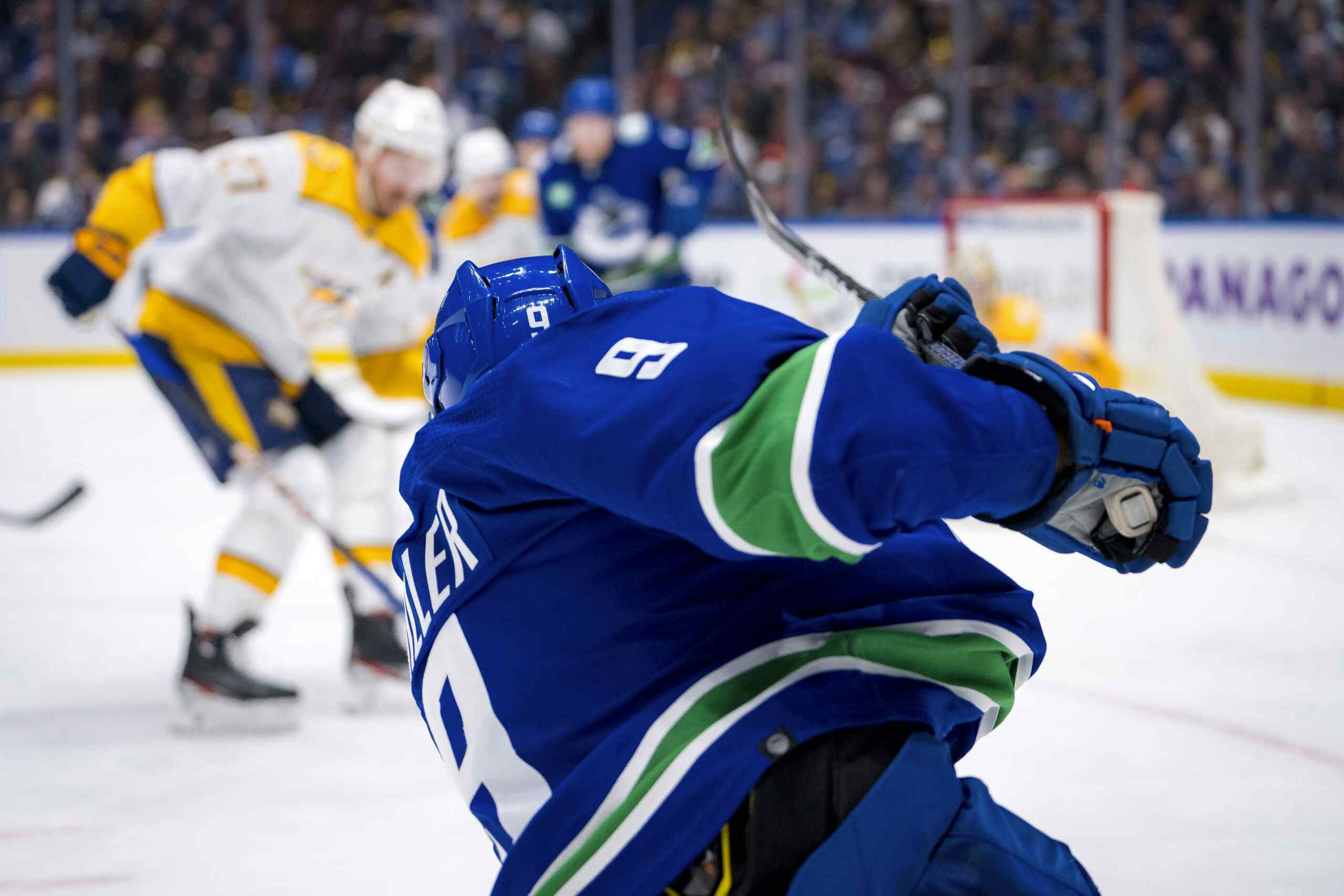Why Elias Pettersson Should Be Captain Of The Vancouver Canucks

There’s yet to be any official announcement, but every indication is that the Vancouver Canucks will be naming the 12th captain in team history—or 14th if you count Dan Quinn and Doug Lidster as “tri-captains” with Trevor Linden in 1990/91—sometime before the start of the 2019/20 season. But who will it be?
In this series, CanucksArmy will be taking a good look at all the serious candidates for the job—and making the best possible arguments for each of them in turn.
It’s important to note that none of these articles represent the actual opinion of this author or the other writers on CanucksArmy. In other words, just because you’re reading an article entitled “Why Elias Pettersson Should Be Captain Of The Vancouver Canucks” it doesn’t mean we actually believe Pettersson should be captain of the Vancouver Canucks—we’re just engaging in the mental exercise of advocating for him as a captaincy candidate.
Don’t worry—this author has a fairly inflexible opinion on who should actually wear the “C,” and this series will conclude with a three-part PR campaign for that individual. For now, however, there are several other players that are worthy of your consideration.
Simply The Best
It isn’t always the case that a team’s best player also serves as their captain—but it is often the case. Taking a quick look around the league, the list of franchises with captains that are or were the top talent in the organization is a long one—and it includes Anaheim, Arizona, Buffalo, Dallas, Edmonton, Florida, Philadelphia, Pittsburgh, St. Louis, Tampa Bay, and Washington.
That’s more than one-third of the league, which highlights just how common it is. The tendency to name an organization’s best player to the captaincy happens even more frequently when that individual is also an elite center. Sidney Crosby, Connor McDavid, Aleksander Barkov, and Jack Eichel all fall within this category.
Which brings us to Elias Pettersson—who one year into his NHL career has already established himself as the best player in the Vancouver Canucks organization, and who probably belongs as much in the previous category of NHLer than he does in any other grouping. As a rookie, Pettersson is already the offensive leader of the franchise—and that’s only going to become more true as he becomes more experienced and moves into his prime.
What this really means is that when the Canucks do become legitimate Stanley Cup contenders again—something that most supporters have pencilled in for the 2021 season or later—they’ll be doing so on the back of Pettersson’s contributions. And if he’s going to be the primary driver behind the team’s success, shouldn’t be also be wearing the “C”?
Avoiding A Captaincy Controversy
Let’s use the above list of centers as an example here. Each of Crosby, McDavid, and Eichel were named as captains of their team at a very young age—and arguably before they were truly worthy of the role. However, each of their organizations recognized very early on that these players would be central to their team moving forward in more ways than one—and so they got a head start on something they felt was inevitable.
Imagine instead if the Edmonton Oilers had gone with a safer play in 2016/17 and named a more veteran asset—like Ryan Nugent-Hopkins—as team captain. That would have started to look silly almost immediately, and the distraction of having someone other than McDavid wear the “C” would have only increased from there. By the 2018/19 season, there would have already been years worth of storylines about how much more McDavid deserves the role than Nugent-Hopkins—and no team needs that distraction.
Older players stepping down from the role of captain so a younger leader can take over does have some precedent—but it usually only occurs when said captain is a role player that is already on their last legs. Craig Conroy famously did it for Jarome Iginla in Calgary, but more often than not the process is a whole lot more awkward than Conroy made it.
The Washington Capitals had to trade their captain, Chris Clark, to the Columbus Blue Jackets so that they could give Alex Ovechkin the “C.” In San Jose, Joe Thornton was stripped of his captaincy so that Joe Pavelski could take over. Thornton eventually got over it and remains Pavelski’s teammate to this day—but not everyone is as affable as Jumbo Joe, and the incident still caused a major distraction for San Jose when it occurred.
Try to picture a situation in which Elias Pettersson continues to progress as an elite NHL talent—establishing himself as one of the best centers in the league—and starts to really drive the success of the Vancouver Canucks. Now imagine that someone else—in all likelihood, Bo Horvat—is wearing the “C.” Are there any among us who seriously doubt that the local media wouldn’t go to town on such a juicy potential controversy?
If the media can manufacture endless goaltending crises in Vancouver, they can definitely whip up a captaincy controversy—and an up-and-coming franchise just doesn’t need that smoke. Naming Pettersson as the captain now—or perhaps after a season or two of Alex Edler as captain—would be betting on him to grow into the role, and betting on Pettersson is always a safe call.
The Tangibles
Of course, there are a litany of reasons why Elias Pettersson would make a good captain that have nothing to do with him being the best player in the organization. He’s charming and likeable, and his relationship with the media will no doubt improve along with his mastery of the English language.
As a self-taught talent, Pettersson exudes workmanship. A player very much in the mould of Sidney Crosby, Pettersson hasn’t yet his early success in the NHL stop him from working on improving his game. Like Crosby—and like Henrik Sedin—Pettersson can be counted on to be one of the hardest-working players at practice for years to come, and that would make him an inspiring figure to anyone joining the team.
Imagine being a rookie and seeing that your team’s top talent and designated leader outworks everyone else at practice despite already being the most skilled by a big country mile. How could anyone not be inspired to push themselves harder in the face of such a positive example?
Lastly, it bears mentioning just how well Pettersson has dealt with pressure and responsibility thus far in his career. He stepped into his rookie season straight out of Sweden and became the Canucks’ number one center within weeks, and never so much as broke a stride. Pettersson bounced back from two serious injuries with no apparent ill effects. When the rest of the league took notice of him and turned up the defensive pressure, Pettersson didn’t wilt—he just kept piling up the points.
That means that—should Pettersson be named captain of the Vancouver Canucks at some point—there’s little reason to worry that it will negatively affect him, and every reason to believe that he’ll excel in the role as he excels in all other aspects of hockey.
He’s just that good.
Recent articles from Stephan Roget




